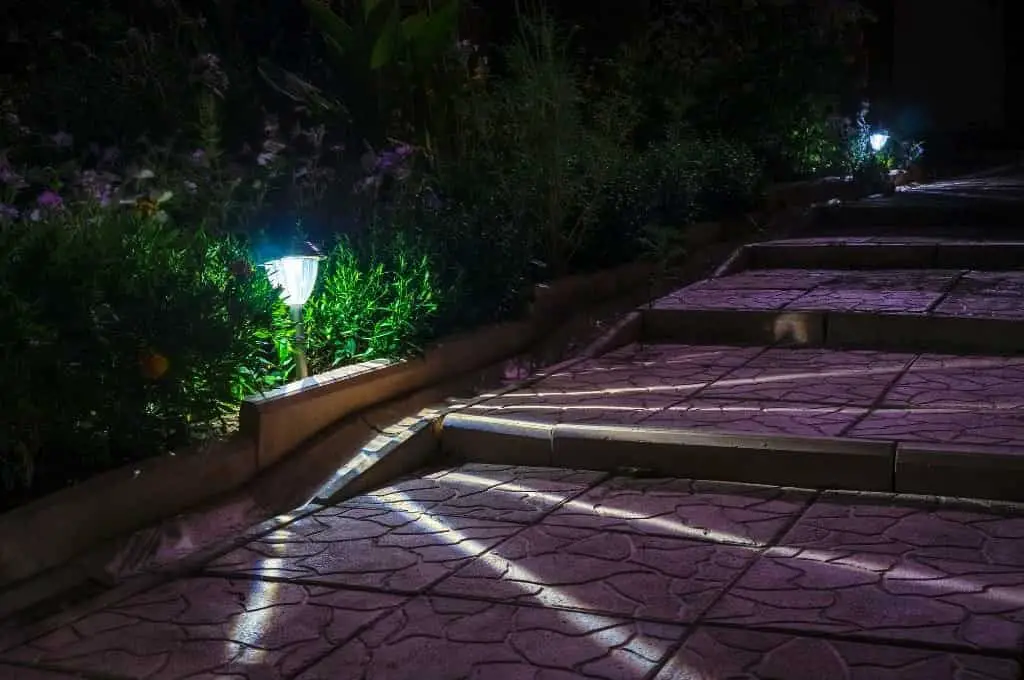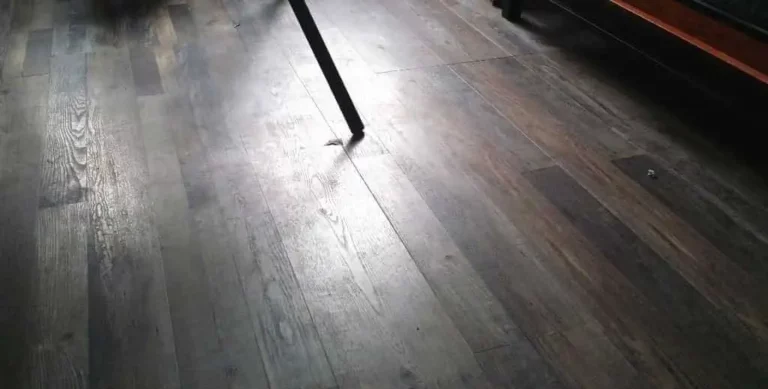Solar Lights Staying on During the Day? Here’s What to Do!

Solar lights, if they’re working properly, should remain off during the day and come on at night. The sunshine charges the lights in the daytime so they have enough ‘juice’ to stay fully lit when its dark out. But what do you do if the reverse happens? This begs the question, ‘why are my solar lights staying on during the day?’
The reason your solar lights are staying lit during the day is likely due to a faulty night reading, often caused by water or dirt getting inside the light and causing it to malfunction. Another reason could be poor wiring which is causing the light to short circuit. And yet a third reason could be a dead or dying battery. As frustrating as this may be, there are ways to remedy it.
Now that you know what causes solar lights to stay on in the daytime, let’s take a closer look at this in more detail below. We’ll discuss how and why this happens as well as the different ways to narrow down the culprit in order to fix the problem. So, if you’re ready to learn more about solar lights and how to keep them functioning properly (at night, not during the day), then let’s get started!
Why Do My Solar Lights Turn on During the Day?
The causes for solar lights turning on during the day include the following:
- a malfunction caused by a dead
or faulty battery - a problem with the sensor
caused by dust or moisture getting inside the light - poor wiring, causing the light
to short out or come on when it shouldn’t - a dirty solar panel on top of
the light caused by environmental elements including wind, rain, snow, etc. - the sensitivity settings on the
lights are set too high - the override switch on the
lights may be accidently turned on
How Do I Keep My Solar Lights from Turing on During the Day?
To keep your solar lights functioning properly and not turning on during the day, try the following:
Reposition the Lights
For solar light to work properly, they need to be in full sunlight so they can charge up. Do not place them in shadowed areas in your yard. Rather, put them where they can receive at least 6 hours of sunshine each day. This will not only keep them functioning well (and not turning on during the day) but also ensure that they stay lit when the should (throughout the entire evening).
The best way to determine which spots get adequate sunshine (enough to fully charge your solar lights) is to observe your yard for an entire day, paying attention to where the shadows are cast. If possible, place your lights in the southernmost areas, where the sun is likely to hit them longer. This will give the batteries a ‘boost’, allowing the lights to stay lit all night long.
Clean the Lights
Solar lights covered in dust and dirt will not work as they should. The debris on top of the solar panel will prevent sunlight from charging it completely, thus causing a faulty night reading. Whenever you head out to water the grass or your garden, give your lights a quick cleaning by blasting the hose on them. Do this gently, however, to avoid damaging the lights.
Once a month, give the lights a thorough cleaning. Take a bucket of warm, soapy water with a sponge and wipe down the lights. Do not, however, place the lights directly into the bucket as this could damage the internal mechanism. After cleaning, rinse the lights with water using your hose set on a light pressure setting and then let them dry naturally in the sun.




Adjust the Settings
Sometimes solar lights are working fine, they’re just set improperly. Begin by checking the sensitivity setting first. Make sure its not set to ‘high’ as this will cause the lights to turn on too early or in slightly overcast conditions when it’s still daytime. Read the owner’s manual to see if the lights come equipped with an override button and set it to ‘off’.
Adjusting the settings is easy. If you want the lights to turn off at dawn, set the duration to 0. If you prefer the lights stay on a bit longer, then set the shut-off time to 5 or 10 minutes. If you want the lights to turn on at dusk, set the sensitivity to ¼ of the way around. Or, if you rather the lights go on when its completely dark out, then set the switch to the lowest setting (around 5 or 10 per cent sensitivity).
Return the Lights
If the lights are still under warranty, return them to the seller. If you’ve repositioned them, cleaned them and adjusted them and nothing has helped, then most likely there’s a problem with the light itself. If you still have the purchase receipt, you may also consider exchanging the lights for new ones, just be sure to clean them and return them in their original packaging.
Hire an Electrician
If all other options fail, a last resort includes hiring a professional electrician to examine the lights. Do not try to pry open the lights and fix them yourself, unless of course, you have prior knowledge of how to fix electrical circuits. Otherwise, you run the risk of damaging the lights beyond repair. This could be a costly solution to the problem so be sure to get a quote from the electrician beforehand.
Do You Leave Solar Lights on All the Time?
Contrary to popular belief, solar lights do not need to be left on all the time to function properly. They will often charge even when turned off. In fact, shutting them off for 72 hours encourages the battery to charge completely. This gives the lights time (over the 3 days in the sunlight) to reach full functioning capacity. Do this regularly (once a month) with solar lights to keep them in optimal working condition.
How Do You Keep Solar Lights Working Properly?
To keep solar lights working properly, apart from repositioning them, cleaning them and adjusting them, use the proper battery. These lights require rechargeable batteries in order to house the sun’s energy. If the lights are malfunctioning, try removing the existing battery and replacing it with a new one that is fully charged and disposable, if possible.
Can You Use Alkaline Batteries to Fix Solar Lights?
To ensure that your solar lights are functioning correctly, it is recommended that you not use alkaline batteries, as this can damage them beyond the point of repair. Meaning, the lights may no longer respond to rechargeable or disposable batteries once changed out. If you must use alkaline batteries, be sure to do so for only a short time – a week at the most. They should only be used as a temporary or last resort, if you’re waiting for replacement rechargeable batteries to arrive in the mail, for example.
Conclusion
To conclude, there are a few different reasons why your solar lights are staying lit when they shouldn’t, which is during the day. The likely culprit is a faulty night reading, often the result of moisture or debris getting inside the light and causing it to malfunction. Another possible reason could be poor wiring, causing the lights to short circuit. Or, a dead or dying battery could be the reason as well.
But, fear not, there are ways to fix the problem. Repositioning the lights, cleaning them, adjusting the settings and changing the battery are all possible remedies. Troubleshooting will be required in order to narrow down the cause. Once you figure out how your solar work, you’ll be better able to fix the underlying problem.
Good luck!




